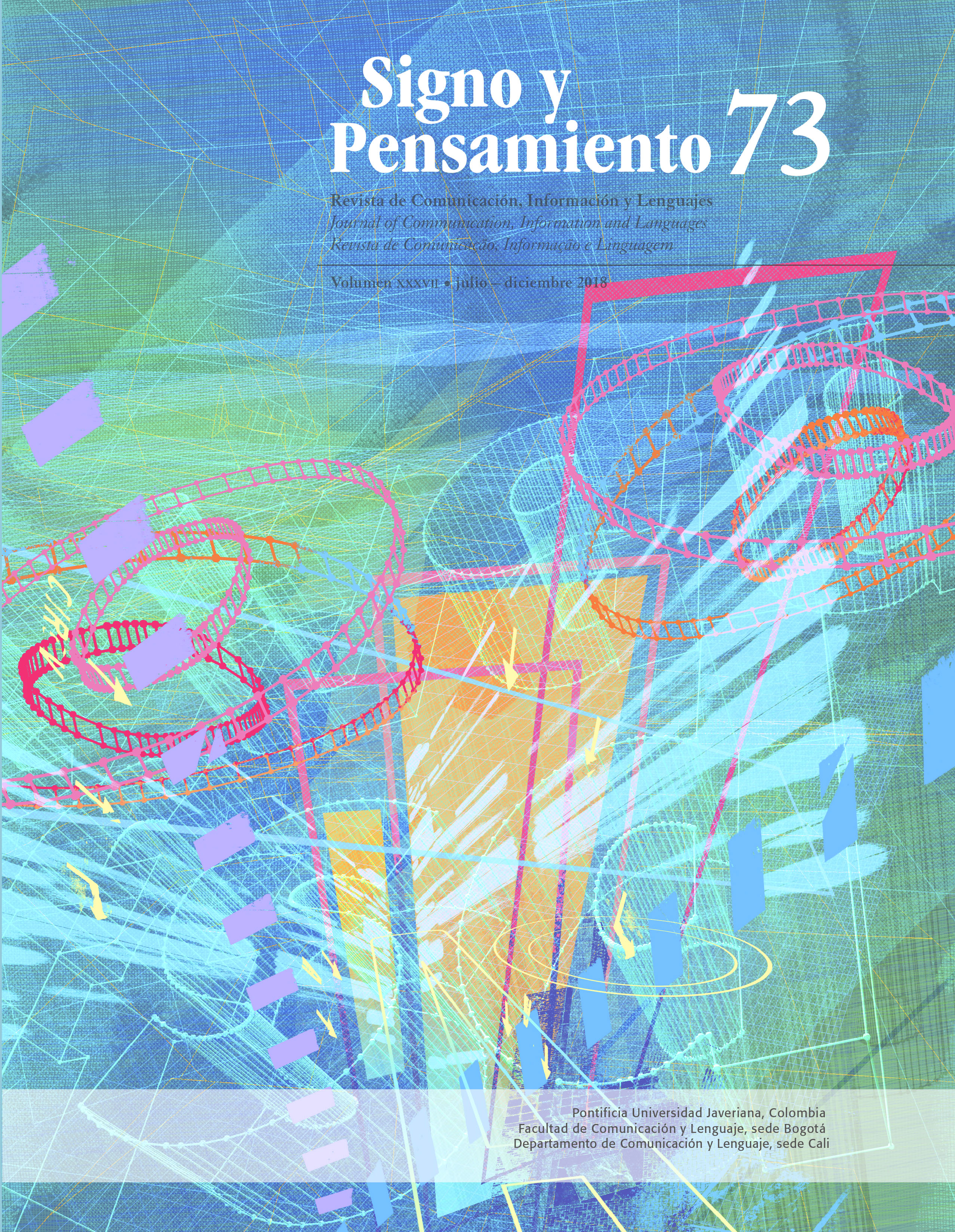Abstract
Research on interculturality and initial foreign language (FL) teacher education has focused mainly on the development of intercultural communicative competence (ICC) and few studies address said topic from a critical standpoint that might allow us to think about other ways of teaching and learning (T&L) a language. This article describes a research that sought to understand what intercultural perspective is included in three initial FL teacher education programs in the city of Bogotá, Colombia. The study is framed within a qualitative research logic, with a mixed focus and a multilevel concurrent nested design, which is characterized by the simultaneous gathering and analysis of qualitative and quantitative information. From the study, it is evident that the three undergraduate programs promote a reflexive and functional model, which establishes teacher education objectives, knowledge, and specific strategies, but also challenges to be undertaken.
Byram, M. (1989). Cultural studies in foreign language education. Clevedon: Multilingual Matters Ltd.
Byram, M. (1991). Teaching-and-learning Language-and-culture. Great Britain: Multilingual Matters Ltd.
Byram, M. & Fleming, M. (1998), Language learning in intercultural perspective. Approaches through drama and ethnography, Cambridge, Cambridge University Press.
Byram, M., Nichols, A., & Stevens, D. (2001). Developing intercultural competence in practice. Clevedon: Multilingual Matters Ltd.
Corbett, J. (2003). An intercultural approach to English language teaching. Clevedon: Multilingual Matters Ltd.
Cortazzi, M. & Jin, L. (2007). Cultural mirrors: Materials and methods in the EFL. In E. Hinkel (Ed.), Culture in second language teaching (pp. 196-219). Cambridge, UK: Cambridge University Press.
Etxeberría, J., García, E., Gil, J., & Rodríguez, G. (1995). Análisis de datos y textos. Madrid: Ra-ma.
Hernández-Sampieri, R., Fernández-Collado, C., & Baptista-Lucio, P. (2014). Metodología de la investigación. México: Mc Graw Hill.
Kramsch, C. (1997). Teaching and assessing intercultural communicative competence. Clevedon: Multilingual Matters Ltd.
Kramsch, C. (1998). Language and culture. Oxford: Oxford University Press.
Lebart, L., Salem, A., & Bécue, M. (2000). Análisis estadístico de datos y textos. Lleida: Editorial Milenio.
Liddicot, A. (2008). Intercultural Language Teaching and Learning. Wiley-Blackwell.
Luque-Agullo, G. (2004). El dominio de la lingüística aplicada. RESLA, (17-18), 157-173.
Mignolo, W. (2003). Historias locales / diseños globales. Colonialidad, conocimientos subalternos y pensamiento fronterizo. Madrid: Ediciones Akal.
Montero, I. & León, O. G. (2002). Clasificación y descripción de las metodologías de investigación en Psicología. Revista Internacional de Psicología Clínica y de la Salud, 2(3), 503-508.
Moreno, P. E. (2006). Tras las Huellas del Saber Pedagógico. Bogota: Universidad Pedagógica Nacional.
Peña, D. (2000). Prologue. In L. Lebart, A. Salem, & M. Bécue: Análisis estadístico de textos (pp. 15-16). Lleida, España: Milenio.
Prosser, M. & Trigwell, K. (1999). Understanding Learning and Teaching: The Experience in Higher Education: Buckingham: SRHE and Open University Press
Richards, J. (1990). Towards Reflective Teaching. Teacher trainer No. 33.
Richards, J. (1990). The Language Teaching Matrix. Cambridge: Cambridge University Press.
Segovia, J. & Fernadez, M. (1999). Técnicas para el desarrollo personal y formacion del profesorado. Cuadernos monograficos ICE, No. 10. Bilbao: Universidad de Deusto.
Sercu, L. (2002). Implementing Intercultural Foreign Language Education. Belgian, Danish and British Teachers' Professional Self-concepts and Teaching Practices Compared. Evaluation & Research in Education, 16(3), 150-165.
Sercu, L., Bandura, E., Castro, P., Davcheva, L., Laskaridou, C., Lundgren, U., et al. (2005). Foreign language teachers and intercultural competence: an international investigation. Clevedon: Multilingual Matters Ltd.
Shon, D. (1992). La formación de profesionales reflexivos. Hacia un nuevo diseño en la enseñanza y el aprendizaje en las profesiones. Barcelona: Paidos.
Walsh, C. (2009). Interculturalidad, Estado, Sociedad. Luchas (de) coloniales de nuestra epoca. Quito: Ediciones ABYA-YALA.
Walsh, C. (2005). Interculturalidad, conocimientos y decolonialidad. Signo y Pensamiento, XXIV(46), 39-50.
Walsh, C. (2010). Interculturalidad crítica y pedagogía de-colonial: apuestas (des)de el in-surgir, re-existir y re-vivir.
Entrepalabras - Revista de Educación en le lenguaje, la literatura y la oralidad. La Paz, Universidad Mayor de San Andres. No. 3-4
This journal is registered under a Creative Commons Attribution 4.0 International Public License. Thus, this work may be reproduced, distributed, and publicly shared in digital format, as long as the names of the authors and Pontificia Universidad Javeriana are acknowledged. Others are allowed to quote, adapt, transform, auto-archive, republish, and create based on this material, for any purpose (even commercial ones), provided the authorship is duly acknowledged, a link to the original work is provided, and it is specified if changes have been made. Pontificia Universidad Javeriana does not hold the rights of published works and the authors are solely responsible for the contents of their works; they keep the moral, intellectual, privacy, and publicity rights.
Approving the intervention of the work (review, copy-editing, translation, layout) and the following outreach, are granted through an use license and not through an assignment of rights. This means the journal and Pontificia Universidad Javeriana cannot be held responsible for any ethical malpractice by the authors. As a consequence of the protection granted by the use license, the journal is not required to publish recantations or modify information already published, unless the errata stems from the editorial management process. Publishing contents in this journal does not generate royalties for contributors.



